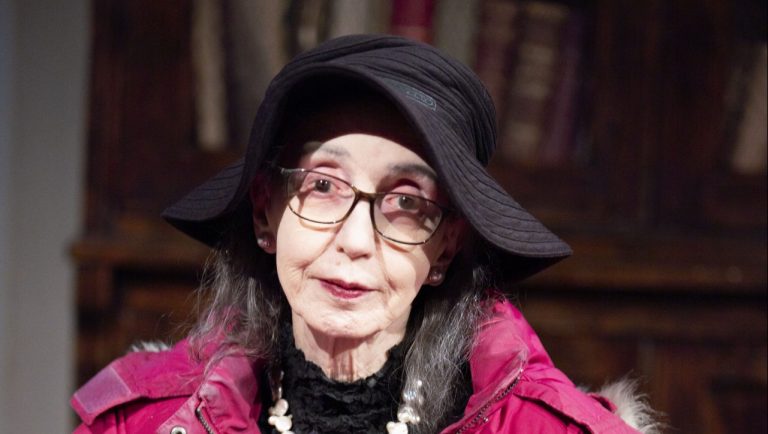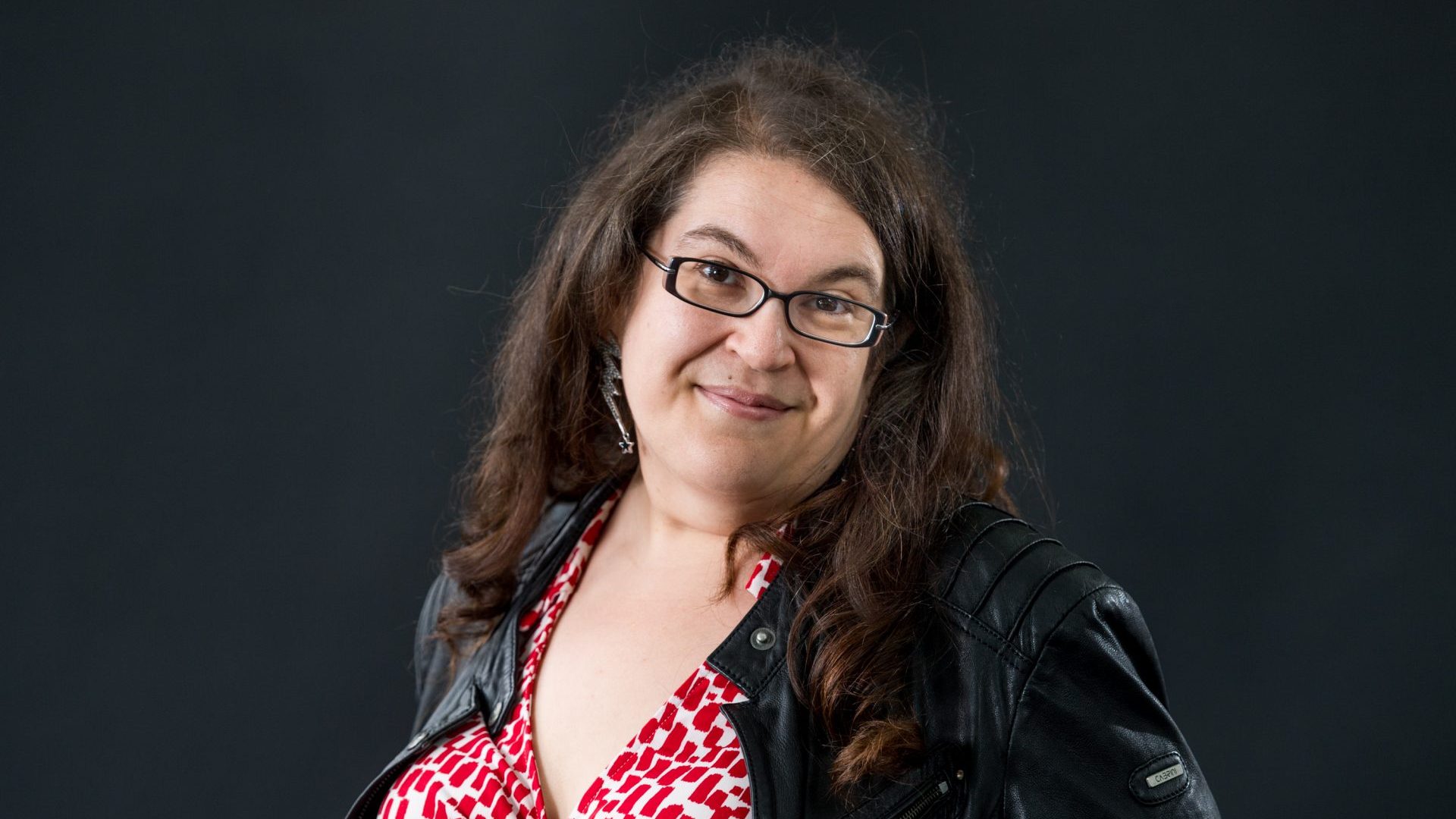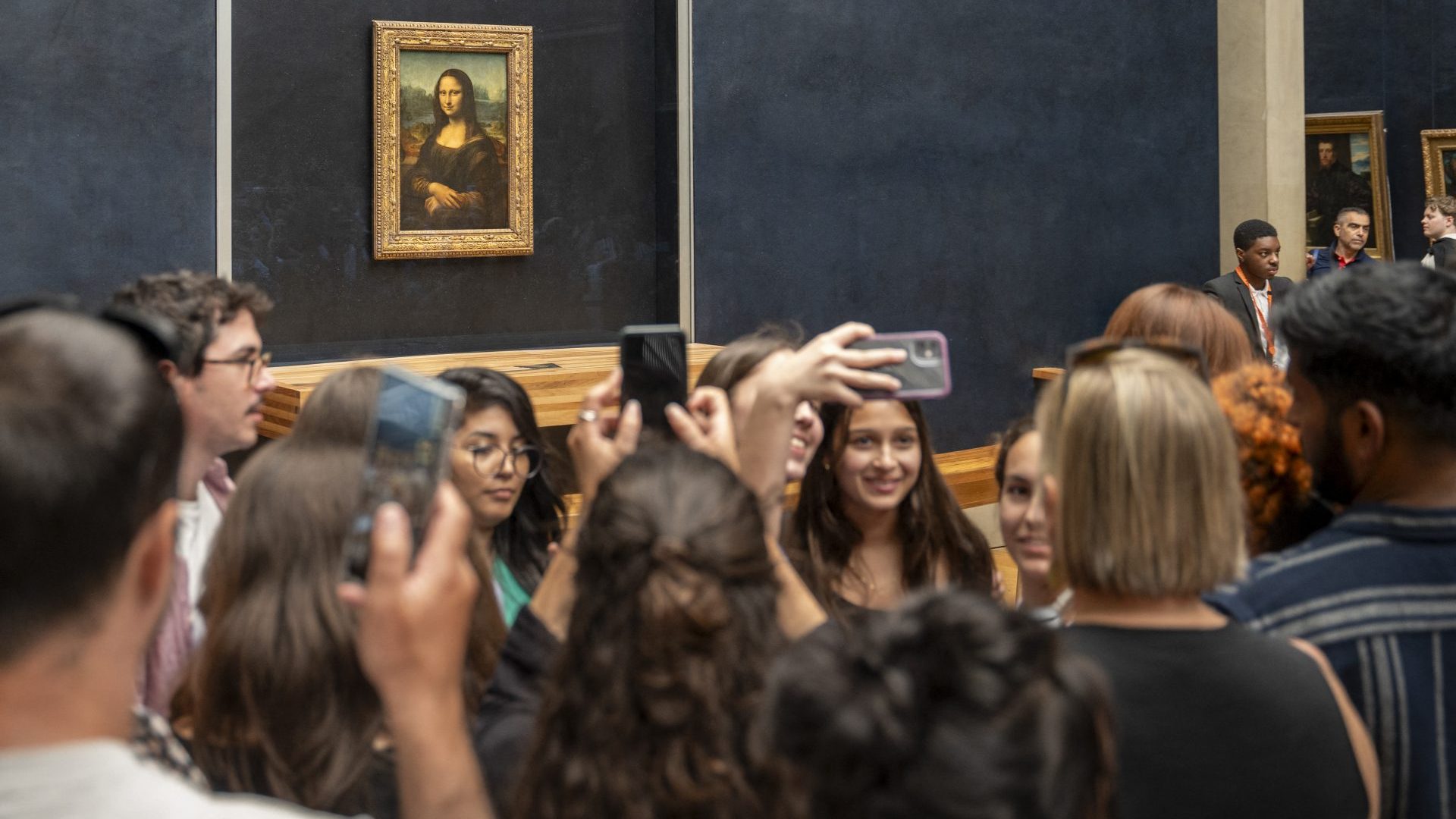Naomi Alderman has an impressive CV. She’s best known as the author of The Power, the internationally bestselling novel ruminating on feminism, control, and our relationship with technology – adapted into an Amazon Prime drama starring Toni Collette.
She’s a fellow of the Royal Society of Literature, and is often described as a protégé of Margaret Atwood, the author of The Handmaid’s Tale. She has also, she tells me with obvious pleasure, recently completed a master’s degree in classics at the Open University.
Alderman has built a career building fictional worlds, but in her latest book she’s turned her eye to the real one, tackling the information crisis and the way the internet is polarising us, drowning us in misinformation, and seeming to make us all crueller and angrier.
This book, Don’t Burn Anyone at the Stake Today, is no novel, though. Sitting in a quiet cafe in north London, she explains that the more she thought and read about the information crisis, the more urgent it felt. Soon she was “grabbing my friends by the lapels, going: ‘This is what’s happening. This is it. It’s happened before. We’ve got to tell everyone as soon as possible’.
“After I’d spotted it, I thought this might be the most useful thing I could do with my life – to say this – and time is too short to turn it into a novel,” she says almost apologetically. The resulting book is instead a collection of essays on a theme, drawing lessons from history, sociology, technology and more to think about why new technology is driving us apart and how we might adapt our responses to it.
The result is disturbing, bracing, refreshing, and in places hopeful, all at once – genuinely saying something new on a topic that has generated endless headlines since the rise of Donald Trump and the UK vote for Brexit marked the start of the post-truth era.
Alderman’s unusual perspective begins with the title of her book, which is an obvious reference to the witch trials that spread across Europe and America. One often forgotten aspect of the persecution of women as witches is the role technology played.
Much of the hysteria around witch-hunting stemmed from the book Malleus Maleficarum, a treatise of witchcraft and sorcery – packed with obsessive, sexually-repressed details about the perversions of both – written by Heinrich Kramer, a German church inquisitor in the late 15th century.
Unfortunately for the thousands of women who would later be tortured and murdered, Kramer wrote his book just a few dozen miles away from where Johannes Gutenberg had invented the printing press a few decades before. Publishers were looking for books to print, and books had to be holy, or at least approved by the church. Kramer’s tome, which might otherwise have been forgotten, spread like wildfire, surely helped by its relatively lewd contents.
Alderman’s title, then, reminds us that technology has played a role in conspiracies, demonisation, and literal witch-hunts for far longer than the internet has existed. But she is using it to send a more subtle message, too. She is urging us to consider what it actually means to burn someone at the stake – what a slow and horrible way to die that must be.
There is nothing someone could do, Alderman argues, and certainly no opinion anyone could hold, that justified burning someone at the stake. With this book, she is urging us all to stop and think as we pursue our politics or our principles – are we looking to burn someone at the stake?
It’s a commendable message, I suggest, but one that surely will be missed or misunderstood. Everyone will claim that their enemies burn people at the stake, but they just pursue justice. It’s only something the bad people do, after all, isn’t it? Unless people really read the message carefully, they will assume that witch-hunts are just something other people do.
“On one level, I suppose, defensively I say, a writer can only speak to the people who read her,” she says. “So if somebody decides to just read the title and not the book, I can’t help them.”
Warming to the subject, though, she continues. “This is the problem. Everyone thinks that they are on the right side. But I increasingly think that the right side is not largely defined by your opinions, but by what you do or refuse to do in service of those opinions.
“Yes, I have my views about different subjects, but I have no beef with someone who has a different view to me and expresses that by thinking carefully and maybe writing a thoughtful piece about it,” she continues. “I do have beef with people who use their money and power and influence to try to make lives worse for people, or who write pieces that are not in good faith, or who tell outright lies.”
Suggested Reading

The 87-year-old author who beat Elon Musk
Something about the way Alderman says “money, power and influence” strikes me as pointed, and I note this – was it, or was I imagining things? She pauses and thinks before continuing carefully.
“I’m a trans-inclusive feminist. However, I do not think that women who happen to disagree with me on that are hateful people,” she says, before setting out an extended analogy between the gender wars and religion. The Reformation did not wipe out either the Catholics or the Protestants, she notes.
Eventually, after tremendous bloodshed, the two groups had to learn to live alongside one another. The two groups disagree, and that’s accepted – no Protestant is breaking into Catholic churches and accusing them of cannibalism during services.
“Nobody has a situation any longer where we think that there are places where Protestants or Catholics should not be allowed to use the toilet, that is a real distinction. Right? We have said there should be no place in the world where your particular religion means that you can’t shop peacefully, use public facilities peacefully,” she says.
“And yes, I think there are people in the world right now who are using their money, power and influence to try to do things I think they should be very ashamed of, which is not about their views,” she concludes. “It’s about what you do with those views. There are things that you can do that are more equivalent to burning people at the stake.”
Neither Alderman nor I have said the words “JK Rowling” at any time in this exchange, though it is hard to see where else her analogy could be pointed. But having weighed into a debate many recoil from, lest they face backlash, Alderman is quick to step into another – especially when I suggest that in modern online debates, every side insists that it is their opponents who are the bullies. This is true whether it is on trans rights, on free speech and cancel culture, or any number of other topics.
Alderman swiftly adds that it is certainly true on Israel and Gaza. She was raised as an Orthodox Jew, and says men like the right wing extremist Israeli ministers Itamar Ben-Gvir and Bezalel Smotrich are why she left that faith. “I can’t stand the Netanyahu government… I think that people in Gaza are suffering intolerably. I hope that the ceasefire lasts.”
But she also has a fascination with how each side sees itself. “What I find fascinating is that everybody involved in these conversations can find a way to say that they are the weaker side and they are being persecuted. We all pick our lenses, don’t we?”
Alderman says she sees rising antisemitism, and the way Jewish people – and sometimes Israel – are singled out for treatment others don’t get. But at other times, valid criticism that would be thrown at any nation or individual can be highlighted as an example of discrimination, she says – making her acutely aware of the need to challenge our own instincts.
“I suppose what I would say about it is, as a Jewish person, it’s very easy for me to know the narrative in which Jewish people have been and are persecuted,” she concludes. “And it’s also very important for me to understand the ways in which we are treated as completely normal members of the global community.”
Alderman is trying to tread a course through some of the most fractious territory in modern discourse, encouraging us to be more thoughtful, and perhaps more kind – or, failing that, at least more aware of the contradictions in what we do.
She rejects, for example, the idea that “cancellation” is straightforwardly good or bad, and certainly that it’s a concept that belongs to the left or the right. She does note that people often forget what’s at stake when they do it. “Getting someone fired in America usually means they lose healthcare,” she notes. “So, that is actually a really serious thing to do.”
Alderman is working to remind us that even technology we all agree is beneficial to society has its downsides, and we need to learn to work around them. She cites the work of Walter Ong, who noted that before the advent of writing, human society had to value and respect the elderly, because they were our memory – here was where to go to avoid a flood, here was where to find food in the snow.
Honouring and looking after the elderly was not just a matter of decency, gratitude, or respect – it was straightforward self-interest. And then writing came along, and supplanted the need for older people to retain knowledge. It was on the page, instead. Without writing we wouldn’t have modern society, but it changed our power relationships, and required us to develop norms and customs around older adults instead. It is a story that repeats itself with each new technology we invent.
Still, Alderman believes we have navigated our way through this before, and we can do so again. “I believe in human self-interest,” she says. “I believe that the reason that most people, enough people, got with the programme on Covid was because we could all see around the world how serious that all was.
“I think we will continue to act in self-interest, fundamentally. But I don’t necessarily think that it’s going to be easy or quick. Yes, I think the next few decades are potentially going to be rocky as hell.”




